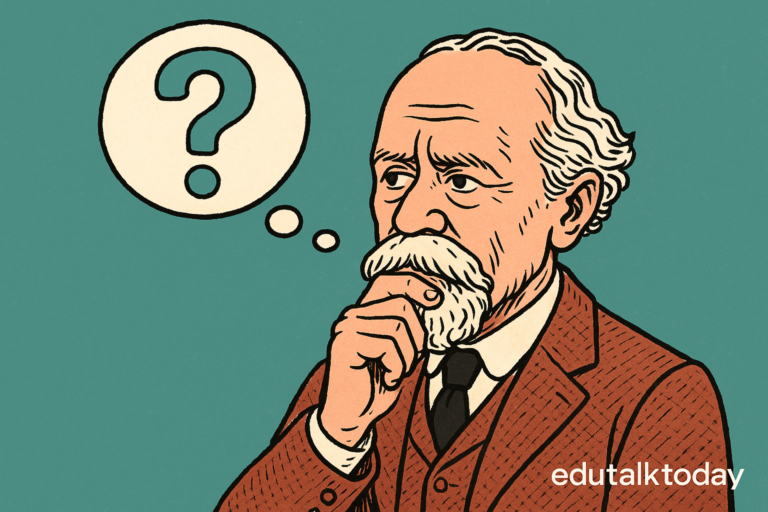Common Misconceptions of Analytic Philosophy

If you’re reading this, chances are you’ve sat through more than your share of seminars on Frege, argued over the analytic-synthetic distinction, and maybe even tried to explain why “analytic philosophy” isn’t a dirty word.
Same here.
But lately, I’ve been thinking: even we, the supposed insiders, carry around a lot of shaky assumptions about what analytic philosophy is. Some of these misconceptions come from the way it’s taught.
Others?
They’re baked right into how we tell the story of our own field.
This post isn’t about dunking on strawmen. It’s about zooming in on the stories we repeat without checking the footnotes.
I think a lot of what we take for granted—especially about analytic philosophy’s origins and boundaries—is more myth than fact. And that matters. Because how we define our tradition shapes what we see as possible within it.
Analytic Philosophy Didn’t Start the Way You Think It Did
Let’s start with the origin story. You know the one: analytic philosophy began when Frege, Russell, and Moore broke decisively from the fog of Idealism, brought logic to philosophy, and lit the path for clarity, precision, and truth. Clean, right?
Not even close.
1. Frege’s “Clean Break” Was a Retcon
Don’t get me wrong—Frege is foundational.
But the idea that he single-handedly started analytic philosophy is more of a post hoc creation than a historical fact.
It’s a narrative constructed by later analytic philosophers—especially in the mid-20th century—who needed a clear founder figure to demarcate themselves from “continental” traditions.
What’s often left out is how embedded Frege was in the intellectual ecosystem of his time.
Figures like Bolzano, Lotze, and even Herbart were already developing rigorous, logic-based critiques of psychologism and offering proto-analytic ideas about mathematics and meaning. Frege read Lotze. He was reacting to his context, not descending from the heavens with Begriffsschrift in hand.
Michael Beaney makes this point beautifully when he describes Frege’s work as part of a “confluence” rather than a rupture.
The clean-break narrative makes Frege look like the father of a revolution, when in reality, he was one very original node in a much more tangled network.
And let’s not forget: Frege didn’t even use the term “analytic philosophy.” That label came later, shaped by the need to build a philosophical identity in contrast to both British Idealism and European existentialism.
2. The Vienna Circle Wasn’t a Unified Front
Another misconception I’ve seen repeated (even in grad-level syllabi) is that logical positivism was a short-lived, hyper-rigid project that got blown up by Quine’s “Two Dogmas.” But that’s a massively simplified story.
The Vienna Circle wasn’t a monolith.
Think about the tensions between Carnap and Neurath, for example.
Carnap was committed to formal languages and rational reconstruction. Neurath, on the other hand, was a scientific pluralist and even a political Marxist who distrusted formalism.
These weren’t minor disagreements—they were deep philosophical divergences about the role of language, theory, and even values in science.
And yet, most analytic histories gloss over this. The whole movement gets flattened into a cartoon: positivists banned metaphysics, Quine wrote one paper, and boom—naturalism reigns.
But look at Carnap’s later work on tolerance, or his flirtations with modal logic. He wasn’t defeated by Quine; he evolved in parallel. The idea that analytic philosophy “moved on” from positivism because it failed is just not supported by the actual intellectual history.
In fact, a lot of what we now call analytic metaphysics was built by people reacting to—or selectively borrowing from—the positivists. Quine himself took tons of cues from Carnap but rebranded them in a more ontologically committed way.
So instead of a clean break from a failed project, what we really have is a messy, adaptive tradition, full of debate and reinvention.
3. British Idealism Never Fully Went Away
You’ve probably heard the trope that analytic philosophy began when Moore and Russell “refuted” British Idealism and pulled the discipline back to realism, atomism, and common sense.
There’s truth to this. Moore’s “The Refutation of Idealism” was influential, and Russell’s early metaphysics clearly marked a shift. But again, this story gets flattened in retrospect.
Because if you read early analytic metaphysics carefully, especially Russell’s, you’ll see some strange continuities with the very Idealism it was supposedly rejecting.
Take Russell’s view of relations. His insistence that external relations are real entities was partly a response to Bradley’s famous regress argument—but it still takes Bradley’s metaphysical worries seriously.
Russell even grapples with the structure of facts in ways that echo Absolute Idealism—he just swaps the vocabulary. Same game, different rules.
What’s more, both Russell and Moore struggled with how to ground knowledge, value, and perception in their new “realist” frameworks. They didn’t have tidy replacements for what they tore down.
So what we get instead is a kind of uneasy inheritance—a metaphysical minimalism that still carries some of the ghosts of Idealism.
Some philosophers, like Tom Baldwin and Peter Hylton, have shown how Russell’s early work shares more with the Idealists than we like to admit.
And if you read Bradley with fresh eyes, you might be surprised at how analytic some of his concerns actually sound.
So why does any of this matter?
Because if we keep repeating the “clean break” myth, we risk misreading our own tradition.
We end up treating analytic philosophy like a closed system with stable foundations, when in fact it’s been open-ended, contested, and historically entangled from the very start.
And here’s the kicker: by recognizing that, we’re not undermining analytic philosophy—we’re actually making it richer.
We’re reclaiming the complexity and diversity that’s been there all along, hidden behind tidy origin stories.
Next up, I’ll walk through 10 of the most common misunderstandings about analytic philosophy—many of which are still floating around in our lectures, syllabi, and conferences.
And no, they’re not just things undergrads get wrong. Trust me, you’ve probably repeated one or two yourself. I definitely have.
Ten Misconceptions of Analytic Philosophy We Still Fall For
Alright, so we’ve poked some holes in the heroic origin myths.
Now let’s turn to contemporary misconceptions—the stuff that shows up in actual philosophical practice today.
What’s interesting is that these misunderstandings aren’t limited to undergrads or outsiders. In fact, some of them are baked into how analytic philosophers explain their own field.
These are the ideas that get casually tossed around in seminars, syllabi, even faculty meetings.
They’re not necessarily false in the simple sense, but they oversimplify, distort, or ignore key parts of our own intellectual history. And they limit how we think about what analytic philosophy is—and could be.
Here are ten persistent misconceptions, and why I think we should push back on them.
1. Analytic Philosophy is Ahistorical by Nature
This one shows up all the time. The idea is that analytic philosophy is all method and argument, with little or no engagement with historical figures—certainly nothing like what you’d find in continental traditions.
But historically, this just isn’t true. Frege was in dialogue with Kant and Leibniz. Russell wrote extensively on Leibniz.
Moore’s early ethics is in deep conversation with ancient and medieval thinkers.
So where did this myth come from?
Probably from the mid-century rise of scientism and formalism, when “doing history” got associated with irrelevance.
But that wasn’t a feature of analytic philosophy as a whole—it was a narrow phase in the American reception of it.
Today, people like Margaret Wilson, Charles Cross, and Béatrice Longuenesse have helped re-integrate history into analytic practice. It’s not a return to something new—it’s a return to something we forgot.
2. Clarity Means Simplicity
This one’s subtle. Analytic philosophy prides itself on clarity. But that often gets misread as simplicity, especially when we contrast it with so-called “obscure” traditions.
But clarity in analytic philosophy has never really been about surface-level simplicity.
Think about Davidson’s “radical interpretation” or Lewis’s modal realism. These are not simple theories in the everyday sense. They’re clear because they’re internally coherent, their assumptions are transparent, and their inferential structure is legible.
It’s worth remembering that sometimes, a simple-sounding statement (like “every object is identical to itself”) can conceal deep metaphysical commitments. Clarity isn’t about saying less—it’s about making sure every term earns its keep.
3. Analytic Philosophy Rejects Metaphysics
People still say this! Especially when contrasting analytic work with more metaphysically rich traditions.
But here’s the reality: analytic philosophy has always done metaphysics—it just hid it better.
Sure, logical positivism took an explicitly anti-metaphysical stance. But even then, Carnap had a whole program for “internal questions” and frameworks, which smuggled in metaphysical commitments through the back door.
And from the 1960s onward, metaphysics came roaring back. David Lewis, Saul Kripke, Kit Fine, and Peter van Inwagen gave us sophisticated modal, mereological, and ontological systems that were as metaphysical as anything from the rationalists.
So let’s stop pretending that analytic philosophy overcame metaphysics. It just reinvented it in a more defensible, formally disciplined way.
4. The Canon Is Fixed
Open up any “Intro to Analytic Philosophy” reader, and you’ll see a familiar set of names: Frege, Russell, Moore, Wittgenstein, Carnap, Quine, Kripke, maybe a few others.
But this gives a highly selective, mostly Anglo-American snapshot of what was actually a much more diverse intellectual movement.
Where’s Peirce, for instance? Where’s Lotze? Where’s early Husserl? These figures were engaging with the same issues—meaning, logic, inference, truth—but they didn’t get canonized.
And even within the canon, there’s weird amnesia. Post-1960s philosophy of mind is often taught without any mention of Wittgenstein’s later work, despite its deep influence on folks like Ryle and Hacker.
In short: the analytic canon is less a product of intellectual necessity and more of academic sociology. We shouldn’t treat it as sacred.
5. Analytic vs. Continental is a Methodological Divide
This one’s tricky. The idea is that analytic philosophy focuses on clarity, argument, and logic, while continental philosophy is more interpretive, historical, and speculative.
But honestly?
The divide is way more institutional than philosophical. It’s about where people get jobs, what journals they publish in, and how departments are structured.
There are “continental” thinkers—like Merleau-Ponty or Foucault—who are way more rigorous and argumentative than some analytic ethicists. And there are analytic philosophers doing deeply interpretive work (like Cavell or Haslanger) that would feel right at home in continental departments.
So yeah, there are tendencies. But the divide isn’t metaphysical. It’s administrative.
6. Analytic Philosophy Is Unified by Method
We like to think of analytic philosophy as having a core method—careful analysis of concepts, maybe some formal modeling, clear argumentation.
But the reality is that analytic philosophy is wildly pluralistic in its methods. Consider:
- The formal methods of logic and decision theory (e.g. Stalnaker, Jeffrey)
- The conceptual analysis of early philosophy of mind
- The experimental turn in epistemology and ethics
- The resurgence of metaphysics grounded in possible worlds
These approaches don’t always play nice together. And that’s okay! Analytic philosophy isn’t a method—it’s a family of overlapping styles. And some of them contradict each other.
7. Ordinary Language Philosophy Was Anti-Theory
This is one of those easy caricatures that just won’t die. People often talk about Austin and Wittgenstein as if they were just saying “don’t theorize—just look!”
But that misses the point. Ordinary language philosophy wasn’t anti-theory—it was a theory of how language works in context. It just didn’t look like metaphysics or formal semantics.
When Austin unpacks the different senses of “know,” or when Wittgenstein explores rule-following, they’re doing something deeply systematic. They’re just using lived linguistic practice as data. It’s more akin to fieldwork than logic.
To call it “anti-theory” is like calling Darwin anti-science because he didn’t use calculus.
8. Naturalism Won
It’s tempting to think of naturalism—especially post-Quine—as the dominant paradigm. And sure, in areas like epistemology, mind, and language, naturalistic approaches have a strong foothold.
But across the broader analytic landscape, plenty of domains remain deeply resistant to naturalism. Metaethics, normative theory, aesthetics, political philosophy—these are areas where normativity, value, and meaning can’t be easily reduced to evolutionary or cognitive facts.
And even in naturalized fields, there’s growing resistance. Philosophers like Susan Haack and Hilary Putnam have pushed back against overly scientistic approaches. There’s a lot more tension here than the standard story suggests.
9. It’s Apolitical
This one’s especially misleading. Analytic philosophy is often described as detached, objective, or even “sterile” when it comes to political engagement.
But that’s a superficial reading. From early discussions of justice (Rawls) to modern work on race, gender, and power (Mills, Haslanger, Dotson), analytic tools have been deeply political.
In fact, the demand for clarity and rigor has been crucial in challenging systemic assumptions—in epistemology, language, and ethics.
The mistake is assuming that political content has to come in the form of slogans or manifestos. But analytic critiques of ideology can be devastatingly precise—and that’s part of their power.
10. Philosophy of Language is the Foundation of the Analytic Tradition
Yes, language was central to a lot of 20th-century work. But the idea that it’s the foundation of analytic philosophy is reductive.
Many analytic projects—especially in recent decades—don’t foreground language at all. Consider contemporary metaphysics, formal epistemology, or social ontology. These often treat language as a tool, not a target.
And even the classic language-focused work—Frege, Russell, Wittgenstein—was often motivated by non-linguistic concerns: logic, mathematics, the mind.
So while language played a massive role, it was more like a means to deeper philosophical ends. The foundation, if there is one, is a commitment to clarity and argumentative transparency—not to language per se.
Final Thoughts
So, are these really “misconceptions”?
Maybe that’s a strong word. But they’re definitely habits of thought that need some shaking up. And honestly, that’s what makes analytic philosophy exciting: it’s not a closed tradition. It’s an evolving conversation, full of self-corrections, rediscoveries, and surprises.
We don’t have to throw out the whole origin story—but we should complicate it.
Because the more we understand the real history and diversity of analytic philosophy, the better positioned we are to keep it alive, creative, and genuinely rigorous.
If any of this felt familiar—or uncomfortable—you’re not alone.
I’ve caught myself repeating half of these ideas too. But that’s the beauty of philosophy, right?
We’re always one good question away from seeing things differently.





